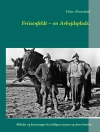This book provides a conceptual framework for understanding the inclusive city. It clarifies the concept, dimensions and tensions of social and economic inclusion and outlines different forms of exclusion to which inclusion may be an antidote. The authors argue that as inclusion involves a range of inter-group and intragroup tensions, the unifying role of local government is crucial in making inclusion a reality for all, as is also the adoption of an inclusive and collaborative governance style. The book emphasizes the need to shift from citizens’ rights to value creation, thus building a connection with urban economic development. It demonstrates that inclusion is an opportunity to widen the local resource base, create collaborative synergies, and improve conditions for entrepreneurship, which are conducive to the creation of shared urban prosperity.
Spis treści
1. Introduction.- 2. Pinpointing the urban paradigm shift.- 3. Conceptualizing exclusion and inclusion.- 4. Dimensions of exclusion.- 5. Policymaking for inclusive cities.- 6.Governing the inclusive city.- 7. Real-life cases of inclusive urban development.- 8. Conclusion
O autorze
Ari-Veikko Anttiroiko is an Adjunct Professor at Tampere University, Finland. His main research areas include local governance, local economic development and public sector innovations. He has authored several internationally distributed books, including The Political Economy of City Branding (2014) and New Urban Management (2015).
Martin de Jong is Scientific Director of the Erasmus Initiative for the Dynamics of Inclusive Prosperity and Professor at Erasmus University Rotterdam and Fudan University, Shanghai. He has published various books and articles on urban and infrastructure development.












